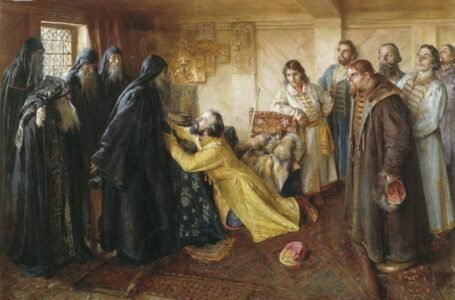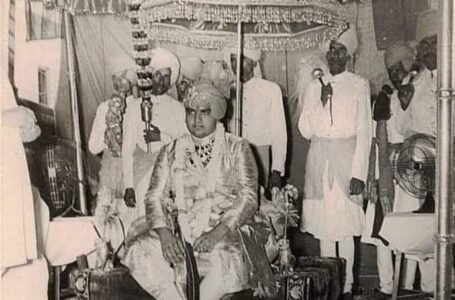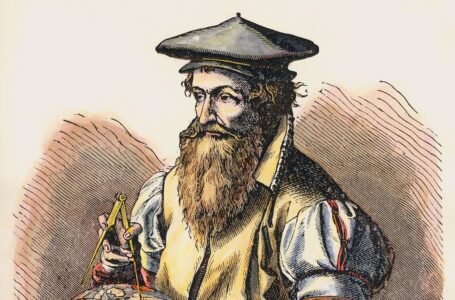WOMEN OF THE CONSTITUENT ASSEMBLY: The sidelined and forgotten voices which startled and silenced
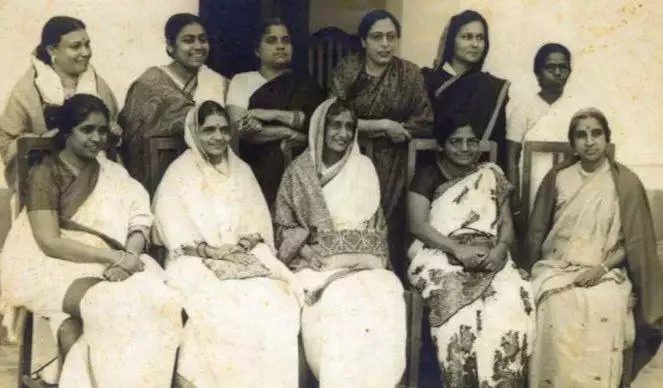
When we revisit the history of nationalism in India through a less travelled route, one would be astounded at the fact of how hitherto not only us but also those who have taught us have precipitously and injudiciously overlooked the distinct contribution of the female community in rubbing shoulders with men to requisition the centuries old wrested freedom. Similarly, when we study about the birth of the Constitution of India by its birthgiver constituent assembly, renowned names of personalities such as Jawaharlal Nehru, Ambedkar, Vallabhbhai Patel instantly strike our mind and we negligently forget to pay tribute to the mothers who have been sidelined from the forefront of constitutional debates.

They were the egalitarian voices of not only the women restricted till household but also represented diverse opinions on a range of issues pertaining to UCC, separate electorates, freedom of religion, reservations and plight of the lower castes. This squad of 15 women among a flock of 299 men was small in size yet impactful in their perspective. They came out as foremothers of an independent nation and set precedents for daughters of the entire nation to traverse on the path of education and become leaders of their destiny. These path breaking women include Ammu Swaminathan, Dakshayani Velayudhan, Begum Aizaz Rasul, Durgabai Deshmukh, Hansa Jivraj Mehta, Kamla Chaudhary, Leela Roy, Malati Choudhury, Purnima Banerjee, Rajkumari Amrit Kaur, Renuka Ray, Sarojini Naidu, Sucheta Kriplani, Vijalakshami Pandit, and Annie Mascarene.

Leela Roy
Born in Goalpara, Assam in October 1900, Leela Roy was a revolutionary reformer who was the only elected woman member from Bengal to the Assembly. She was an impeccable pioneer of women’s education, and a close associate of Netaji Subhash Chandra Bose. She took on the role of an assistant secretary for the All Bengal Women’s Suffrage Committee, organising meetings to advocate for women’s rights. In 1923, along with her friends, she founded the Dipali Sangha, which established schools that also served as centres for political discussions featuring prominent leaders. In 1926, she co-founded the Chhatri Sangha, an association for women students in Dhaka and Kolkata. She also set up a girl’s school in Dhaka.
In 1931, she was the editor of the first magazine entirely edited, managed, launched and written by women known as Jayasree which was endorsed by many notable figures, including Rabindranath Tagore, who christened its name.
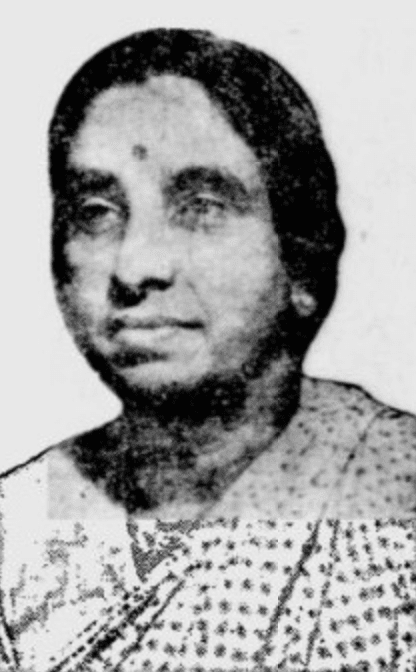
Ammu Swaminathan
Honoured as the “Mother of the Year” in 1975, Annu Swaminathan was a freedom fighter and became a member of the Constituent Assembly from the Madras Constituency in 1946.
Born in 1902, she belonged to an upper-caste Hindu family in Anakkara of Palghat district, Kerala but relentlessly fought against caste based discrimination. In 1917, she played a key role in founding the Women’s India Association in Madras, alongside notable women such as Annie Besant, Margaret Cousins, Malathi Patwardhan, Dadabhoy, and Ambujammal to tackle the social and economic issues faced by women workers. Her husband, Subbarama Swaminathan was her backbone who made her complete her education even after marriage and recognised her potential in fearless thoughts and actions evident from her life as a social worker and politician.
In the Constituent Assembly, Swaminathan was a torchbearer of adult franchise and the abolition of untouchability. Having experienced child marriage firsthand, she championed the Child Marriage Restraint Act, the Age of Consent Act, and various Hindu Code Bills aimed at reforming Hindu religious laws.
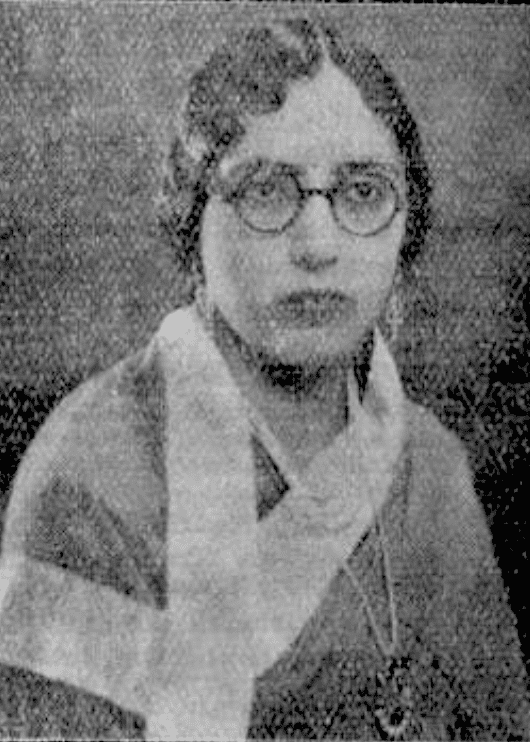
Begum Aizaz Rasul
Sole Muslim women member of the constituent assembly, Begum Aizaz Rasul staunchly opposed reservations as “a self-destructive weapon which separates the minorities from the majority for all time.” Born into a princely family in Malerkotla in Punjab, she was elected to the UP Legislative Assembly after which she officially unveiled the purdah in 1937.
After the partition, she became the Deputy Leader of the Delegation and the Deputy Leader of Opposition in the Constituent Legislative Assembly. She played a key role in convincing Muslim leaders to abandon the demand for reserved seats for religious minorities and opposed separate electorates for Muslims. She was elected to the Rajya Sabha in 1952 and served in the Uttar Pradesh Legislative Assembly from 1969 to 1990. With the growing popularity of Hindutva, Rasul sought to improve the educational and socio-economic conditions of Muslims. She also became the President of the Indian Women’s Hockey Federation and established the All India Women’s Hockey Association for 20 years.
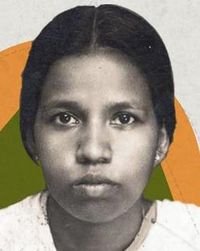
Dakshayani Velayudhan
Dakshayani Velayudhan, born on July 4, 1912, into the Pulaya community on Bolgatty Island, Cochin, was a leader of the oppressed classes who herself faced utter discrimination. She was the first woman from the Scheduled Classes to graduate with a degree in science. In 1945, she was nominated to the Cochin Legislative Council, becoming the first and only Dalit woman elected to the Constituent Assembly. She regarded the Constituent Assembly as a new framework of life for the people.
A Gandhian opposed to untouchability, she supported Article 17 of the Constitution, which abolishes the practice. When Ambedkar introduced the draft Constitution, she praised it but called for greater decentralisation and suggested that the final draft be ratified through a general election. Later, she did not pursue a career in electoral politics, but remained actively involved in social work in Delhi.
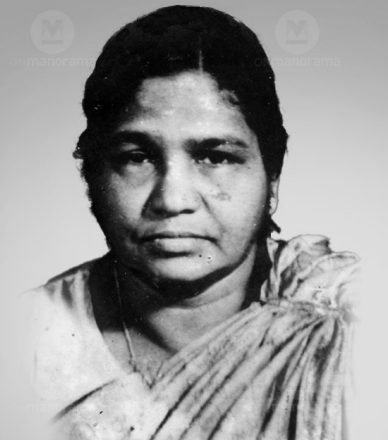
Annie Mascarene
Born into a Latin Catholic family in Thiruvananthapuram, Kerala, Annie Mascarene was the first woman on the Travancore State Congress Working Committee who was later elected as its secretary in 1944 and a leader in the movements for independence and integration with India. She significantly contributed to the drafting of the Constitution while serving on the select committee for the Hindu Code Bill. During the Constituent Assembly Debates, Mascarene stressed on the importance of centralising power to ensure the smooth functioning of democracy but cautioned against complete centralization, warning that it could undermine the essence of democratic institutions. She argued that the Assembly’s role was to establish foundational democratic principles that would serve future generations, not just address immediate concerns. In 1949, she became the first woman post-independence to serve as a state Minister, overseeing Health and Power.

Durgabai Deshmukh
Revered as the ‘Mother of Social Work”, Durgabai Deshmukh, born on July 15, 1909, in Rajahmundry, was a victim of societal injustices which inspired her to become a lawyer and champion social reforms . In 1936, she founded the Andhra Mahila Sabha and was the President of Blind Relief Fund, which grew into a prominent institution for education and social welfare in Madras.
Deshmukh was the only woman on the panel of chairmen in the Constituent Assembly and was elected from the Madras Province. She proposed Hindustani as the national language and expressed concerns about the forced promotion of Hindi in Southern India. She advocated for lowering the age requirement for the Council of Ministers from 35 to 30. After Independence, she became a member of the Planning Commission, serving as the first woman chairperson of the board. She also pioneered the establishment of Family Courts for swift justice in familial matters after her visits to China and Japan. Later, as chairperson of the Central Social Welfare Board, she left a lasting impact on nation-building and social welfare in India.

Hansa Jivraj Mehta
Born on July 3, 1897, Hansa Mehta, a reformer, social activist, educator, and writer, participated in various freedom movements alongside Mahatma Gandhi and established the Desh Sevika Dal in 1930. She was elected to the Bombay Legislative Assembly and wrote numerous children’s books in Gujarati, translating works like “Gulliver’s Travels.”
A member of the Constituent Assembly, Mehta opposed reservations for women, advocating for social, economic, and political justice instead. On August 15, 1947, she presented India’s first national flag to President Rajendra Prasad on behalf of the women of India.
Representing India on the UN’s Nuclear Sub-Committee on the Status of Women in 1946, she became Vice Chairman of the Human Rights Commission in 1950 and served on UNESCO’s Executive Board. She was the first Vice Chancellor of MS University in Baroda and remained dedicated to women’s issues throughout her life.
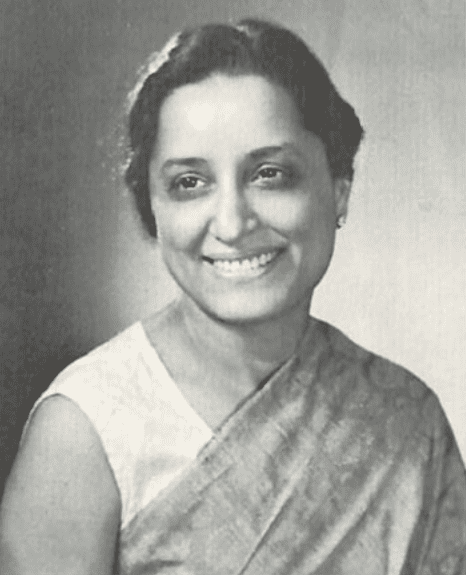
Kamla Chaudhary
Despite being born into a rich family in Lucknow, and facing challenges to pursue her education, Kamla Chaudhary eventually joined the nationalists, actively participating in Gandhi’s Civil Disobedience Movement in 1930. Elected to the Constituent Assembly from the United Provinces (now Uttar Pradesh) in 1946, she served in the Provisional Parliament from 1947 to 1952 and was Senior Vice-Chair of the 54th Indian National Congress Session. She won a seat in the Lok Sabha from Hapur District in 1962 and served as vice-president of the All India Congress Committee. A celebrated fiction writer, her stories often explored women’s inner lives and India’s modernization.
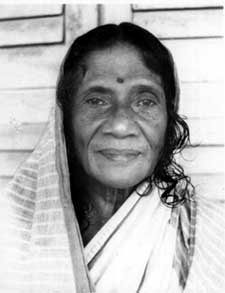
Malati Choudhary
Born in 1904 in what is now Bangladesh, Malati Choudhury joined Viswa-Bharati in Santiniketan at the age of 16 in 1921 after writing a desperate letter to Tagore requesting admission. Seeing her determination Tagore established a girls’ hostel and appointed Malati’s mother as its superintendent, leading to the first intake of female students in 1921-22.
During the Salt Satyagraha, she and her husband joined the Indian National Congress, actively supporting the movement. After Independence, Malati Choudhury, serving as a member of the Constituent Assembly of India and President of the Utkal Pradesh Congress Committee, focused on promoting education, particularly adult education for rural development. She also joined Acharya Vinoba Bhave’s Bhoodan Movement.

Purnima Banerjee
Purnima Banerjee, the Secretary of the Indian National Congress committee in Allahabad, was a leading figure in the freedom movement in the late 1930s and ’40s. In the Constituent Assembly, she was known for her strong commitment to socialist ideals and proposed adding a paragraph in clause 16 to ensure religious education in state-funded institutions promoted comparative religion rather than sectarianism. She also advocated removing the word “sovereign” from the Preamble, believing that true sovereignty lies with the people and not merely in granting voting rights every five years. Her concerns about politicians treating voters as mere vote banks highlight the enduring relevance of her views on political accountability.

Rajkumari Amrit Kaur
India’s first health minister and a pivotal founder of AIIMS, Amrit Kaur was a princess by birth and a dedicated activist by passion, who left her studies to become Mahatma Gandhi’s secretary for 16 years. Kaur was deeply involved in the freedom struggle and shaping independent India. Elected to the Constituent Assembly from the United Provinces, she championed UCC alongside Hansa Mehta, universal franchise, debated protections for religious rights and opposed reservations for women, believing true equality required women to be elected through ordinary processes. She carried a spinning wheel, the Bhagavad Gita, and the Bible during her imprisonment after the Quit India Movement.
She was a strong proponent of women’s education, sports participation, and healthcare. She was one of the founding members of the Indian Council of Child Welfare, and chaired the Indian Red Cross Society for 14 years. The Government of India renamed the College of Nursing in New Delhi to Rajkumari Amrit Kaur College of Nursing in her honour.

Renuka Ray
Renuka Ray, educated at the London School of Economics, was an influential advocate for women’s rights in India. She served as a member of the Central Legislative Assembly, the Constituent Assembly, and the Provisional Parliament. From 1952 to 1957, she was the Minister for Relief and Rehabilitation in West Bengal and later represented Malda in the Lok Sabha. Ray was a leader in the All India Women’s Conference, championing women’s rights and inheritance laws, and also served on the Planning Commission and the Governing Body of Visva Bharati University.
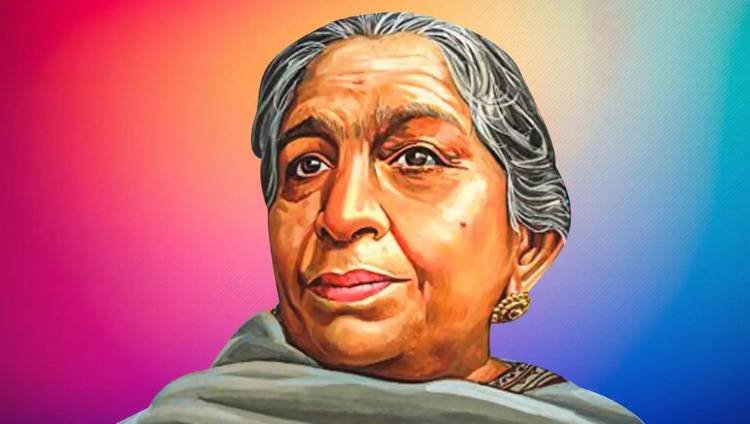
Sarojini Naidu
The “Nightingale of India”, born on February 13, 1879, in Hyderabad, was a prominent Indian freedom fighter and poet. She was the first Indian woman to preside over the Indian National Congress in 1825 and to serve as a governor, overseeing the United Provinces (now Uttar Pradesh) until her death in 1949. Naidu was a key figure in the All India Women’s Conference and played a significant role in Gandhi’s Salt March campaign after his arrest in 1930. Her birthday is celebrated as Women’s Day in India.

Sucheta Kriplani
Born in 1908 in Ambala, Haryana, Sucheta Kriplani was a key figure in the Quit India Movement and was arrested for her activism. She was a notable member of the Constituent Assembly, contributing to the Indian Constitution’s drafting. Kriplani was the first woman Chief Minister of Uttar Pradesh, founded the All India Mahila Congress in 1940, and established the Congress party’s women’s wing. She also served as Uttar Pradesh’s Minister of Labour, Community Development, and Industry.
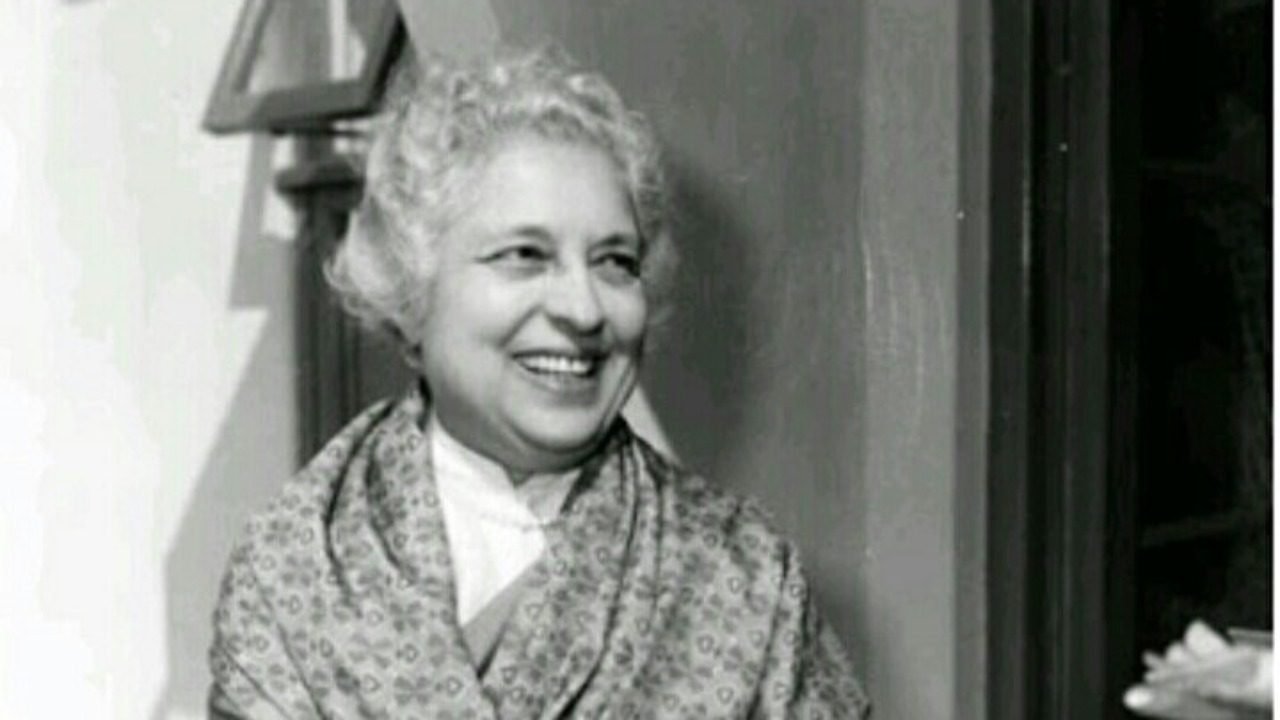
Vijaylakshmi Pandit
Born on August 18, 1900, in Allahabad, Vijaya Lakshmi Pandit was a prominent diplomat and revolutionary like her brother Jawaharlal Nehru. Imprisoned by the British on three occasions, she was the first Indian woman cabinet minister in the British era, serving as Minister of Local Self-Government and Public Health from 1937. Pandit was a key advocate for an Indian constituent assembly. She became the first woman President of the UN General Assembly in 1953 and served as India’s ambassador to the Soviet Union, the US, Mexico, Ireland, and Spain, and was Governor of Maharashtra from 1962 to 1964. After her husband’s death, she campaigned for changes to inheritance laws for Hindu widows. She later returned to parliament from Phulpur (1964-1968).
Nevertheless, these exceptional women, despite suffering not only subjugation and oppression in the private sphere but also imprisonment by the British and disparagement in the Constituent Assembly, never retreated and shied away from crescendoing their voices. From royalty to the most downtrodden, they came from all walks of life lacing hands in hand and standing shoulder to shoulder to give shape to a newborn India.
